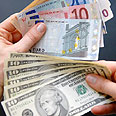
The pact encourages sanctions against bribery in international business transactions carried out by companies based in the countries which are part of the convention.
The treaty rules that a businessman or company offering a bribe or trying to bribe a public servant outside their country, even if through mediators, risk prosecution in any of the countries which have signed the convention.
According to the legislation, enacted in Israel in accordance with the treaty, an Israeli exporter or Israeli company trying to bribe a foreign public servant will be prosecuted with the maximal penalty of three and a half years in prison and a fine of up to NIS 202,000 (about $ 50,864) or up to four times the benefit received in exchange for the bribery payment – whichever is higher.
In the case of a corporation, both the association and the officials involved in paying the bribe in practice could be prosecuted.
Key tool against international corruption
"This is a treaty Israel had to sign, as most of our competitors in the arms export field, like France, have signed it – and we must adapt ourselves," says Dan Catarivas, director of Division of Foreign Trade and International Relations at the Manufacturers Association of Israel.
According to past foreign reports, Israeli arms exporters allegedly paid a bribe abroad. Is the convention meant to affect such cases?
"The convention is not meant to harm us as this is not an artificial limitation which only we imposed on ourselves, but a restriction imposed on our competitors abroad as well. The Americans imposed it on themselves due to their past involvements, and today it applies to all Western arms exporters."
What about Russia?
"They will also have to adapt themselves, eventually, to the international code. Otherwise, they may cause damage to their own export markets."
Will the convention be implemented, or will it remain a lip service?
"I believe there are values which we are trying to implement. Will there be companies which will do their own tricks and act against the convention's spirit? I have no answer.
"The convention against corruption of foreign public servants in international transactions is the organization's key tool in its policy against international corruption," adds Catarivas.
"Israel has exerted a lot of efforts in the past few years in a bid to join the convention despite not being a member of the OECD organization, but its addition to the treaty today is even more important due to it being a central part of Israel's admission to the organization."
An OECD delegation will visit Israel next week in order to examine the implementation of the convention's principles.















